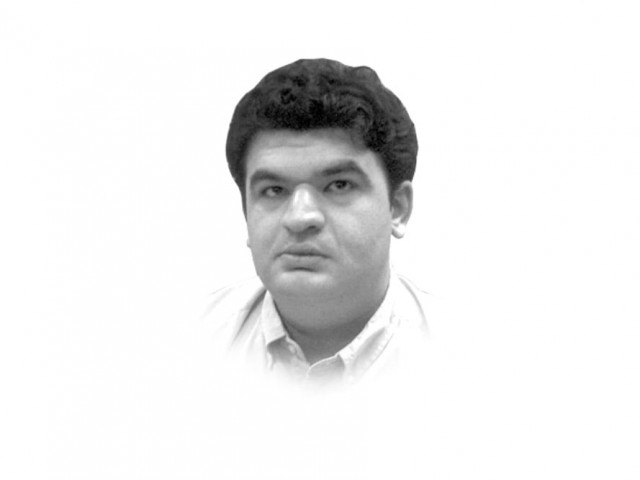Serving multiple masters
There is always the chance that what you are reading is tainted.

Serving multiple masters
There is no point in pretending that all journalists, be they reporters or columnists, are dedicated to uncovering the truth and offering honest, untainted analysis. Everyone whispers, but few dare say aloud, that there are those who are in the pockets of what are euphemistically called ‘vested interests’. The paymasters can be the military or political parties; it really doesn’t matter. There is always the chance that what you are reading is tainted.
A columnist recently told me how to be on the lookout for those whose bank accounts receive direct deposits from the GHQ. Apparently, the most highly sought after are those who have built reputations as critics of the military and then slowly, thanks to the influence of the rupee, begin to change their minds. Certainly there may be those who have done genuine U-turns but the absence of integrity in one person makes everyone a target of suspicion.
I realise that outright bribery doesn’t fall within the definition of conflict of interest but it is important for journalists to recognise that it exists and to shun those who are guilty of it. And there are other ways that the government and the military, with the active connivance of journalists and editors, can create a conflict. It is common practise for journalists to receive paid trips to conflict zones, foreign countries etc. Quite apart from the fact that not disclosing when a trip has been funded by an outside source is misleading readers, the reporting produced is inherently suspect since the journalist has seen only what his hosts want him to see. The benefits of ‘access’, the weasel word used to justify all conflicts of interest, are outweighed by the inherent deceit in not mentioning that the trip was undertaken at the government’s or military’s expense.
When a trip is underwritten by official channels, the journalist is described as being embedded, when a multinational corporation foots the bill, it’s a junket. The conflict of interest is the same in both cases. It can be very hard to turn down what is essentially a paid vacation (if you want me to shill for you I’d like mine in a Western European capital) but once again it is betraying the reader’s trust when one fails to reveal when a piece of writing, even if it is for ‘less important’ sections of the newspaper, has been sponsored by someone other than the journalist’s employer.
The greatest threat to the freedom of the press may actually come not from dictatorial governments but from advertisers that encourage censorship and the true conflict of interest may be faced not by individual journalists but by the media industry as a whole. The media has done immense systemic damage to its credibility when it has given in to demands by corporations that they not be investigated. Furthermore, they have often indulged in self-censorship to attract more advertising revenue. And with both sides having financial reasons not to change the status quo, there is no chance that this conflict of interest can ever be rooted out.
Published in The Express Tribune, August 12th, 2011.














COMMENTS
Comments are moderated and generally will be posted if they are on-topic and not abusive.
For more information, please see our Comments FAQ